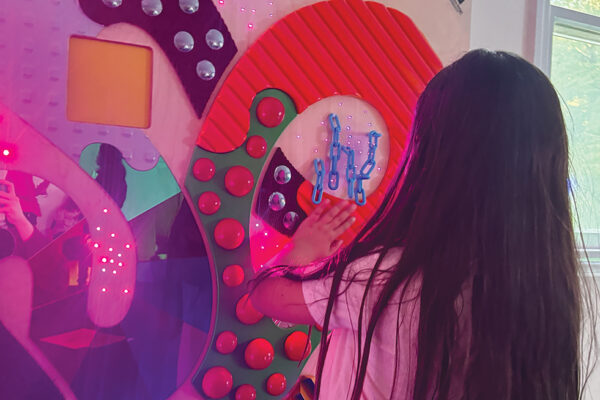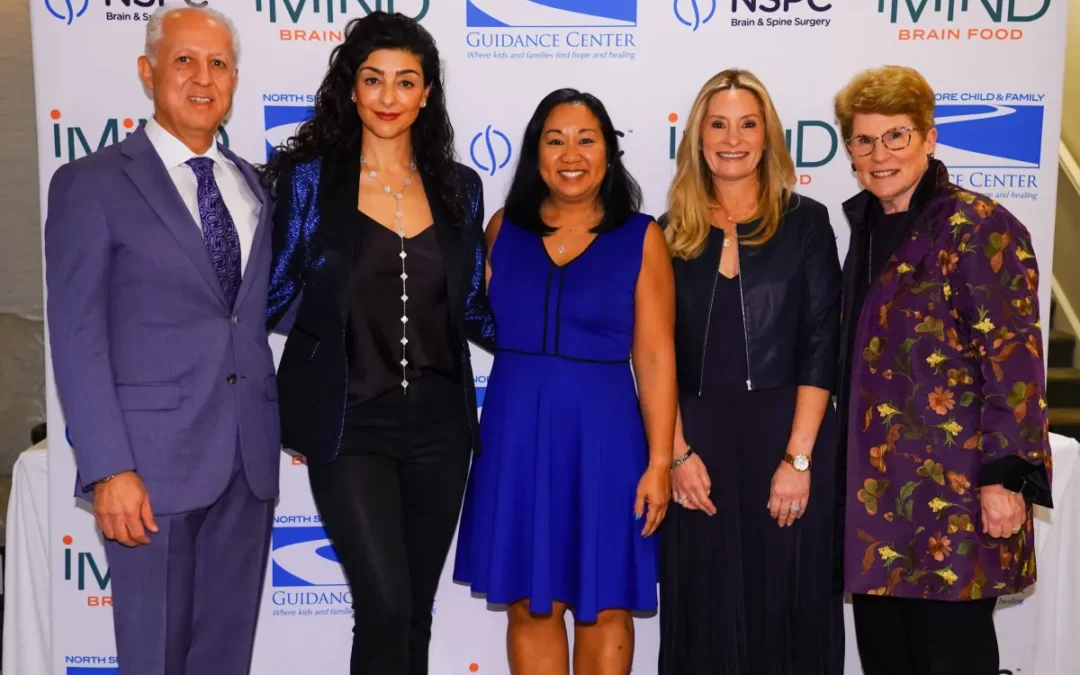


Ask the Experts: Overcoming Teen Dating Violence
In this monthly column, therapists from North Shore Child & Family Guidance Center answer your questions on issues related to parenting, mental health, and children’s well-being. To submit a question, email communications@northshorechildguidance.org.
Question: Our 16-year-old daughter has been severely depressed since breaking up with her boyfriend, who has been harassing and cyberbullying her. He is posting cruel messages about her online, sharing private details of their relationship to embarrass her, and encouraging others to exclude her at school. We were shocked to learn that he had treated her poorly even before the breakup, though she hasn’t been open about what transpired. Now, she’s saying she just wants to disappear, and we’re terrified she might hurt herself. How can we support her emotionally, protect her from further harm, and help her heal from this toxic situation?
– Helpless Parent
Dear Helpless Parent: Finding out that your child has been a victim of teen dating violence is heartbreaking and difficult to navigate for the entire family. When a teen is experiencing interpersonal abuse, whether psychological, sexual, or physical, it can take a severe toll on their mental health, leading to depression, isolation, and even suicidal thoughts.
It’s important to help your daughter recognize that her ex-boyfriend’s actions of spreading false rumors, name-calling, and threats are tactics of control. Abusive partners often manipulate their victims by making them feel unworthy, isolating them from loved ones, and using technology to harass and intimidate. Unfortunately, this behavior is not uncommon. According to the Centers for Disease Control and Prevention, among high school students who dated, about 1 in 12 experienced physical dating violence, and 1 in 10 experienced sexual dating violence, with females experiencing higher rates of both forms of violence than males.
By creating a safe space for open conversation, you let your daughter know that you are there to listen without judgment. Encourage her to share her feelings and thoughts by asking open-ended questions about what she is going through and what she needs, but understand that it may be difficult for her to talk about the trauma she has experienced. It’s important to reassure her that what happened is not her fault and that she is not alone.
Social media has made it more difficult to step away from harassment that might otherwise be confined to school. Enforcing healthy boundaries and digital safety with your daughter will allow her to feel safe at home again, away from the abuse of her ex-boyfriend. Help her adjust her social media privacy settings to protect herself from further harassment, and ensure that she blocks her ex-boyfriend. Reach out to school officials, who may have protocols in place to keep your daughter safe during the school day.
Recognizing the signs of trauma is vital in helping your daughter heal. If she becomes withdrawn, anxious, or irritable, these may be indicators of further emotional distress brought on by her experience. Signs of depression and suicidal thoughts are immediate cause for bringing her to a professional so that she can begin to work through her distress.
Teens recovering from dating abuse need mental health support to rebuild self-esteem and regain a sense of safety. Individual and group therapy can help your daughter recognize what a healthy relationship looks like and develop the tools she needs to move forward.
At North Shore Child & Family Guidance Center, we provide urgent mental health services for children and families facing dire situations like this. Our Triage and Emergency Services team is here to help your daughter develop the strength to overcome this trauma and the tools to learn what a loving, respectful relationship is like.
To learn more about our lifesaving programs, call the Guidance Center at (516) 626-1971 or visit www.northshorechildguidance.org. In case of an emergency after hours, contact our partners at Long Island Crisis Center, (516) 679-1111.

Ask the Experts: Overcoming Teen Dating Violence
In this monthly column, therapists from North Shore Child & Family Guidance Center answer your questions on issues related to parenting, mental health and children’s well-being. To submit a question, email communications@northshorechildguidance.org.
Question: Our 16-year-old daughter has been severely depressed since breaking up with her boyfriend, who has been harassing and cyberbullying her. He is posting cruel messages about her online, sharing private details of their relationship to embarrass her, and encouraging others to exclude her at school. We were shocked to learn that he had treated her poorly even before the breakup, though she hasn’t been open about what transpired. Now, she’s saying she just wants to disappear, and we’re terrified she might hurt herself. How can we support her emotionally, protect her from further harm, and help her heal from this toxic situation?
– Helpless Parent
Dear Helpless Parent: Finding out that your child has been a victim of teen dating violence is heartbreaking and difficult to navigate for the entire family. When a teen is experiencing interpersonal abuse, whether psychological, sexual, or physical, it can take a severe toll on their mental health, leading to depression, isolation, and even suicidal thoughts.
Understanding the Abuse
It’s important to help your daughter recognize that her ex-boyfriend’s actions of spreading false rumors, name-calling, and threats are tactics of control. Abusive partners often manipulate their victims by making them feel unworthy, isolating them from loved ones, and using technology to harass and intimidate. Unfortunately, this behavior is not uncommon. According to the Centers for Disease Control and Prevention, among high school students who dated, about 1 in 12 experienced physical dating violence, and 1 in 10 experienced sexual dating violence, with females experiencing higher rates of both forms of violence than males.
Steps of Support
By creating a safe space for open conversation, you let your daughter know that you are there to listen without judgment. Encourage her to share her feelings and thoughts by asking open-ended questions about what she is going through and what she needs, but understand that it may be difficult for her to talk about the trauma she has experienced. It’s important to reassure her that what happened is not her fault and that she is not alone.
Social media has made it more difficult to step away from harassment that might otherwise be confined to school. Enforcing healthy boundaries and digital safety with your daughter will allow her to feel safe at home again, away from the abuse of her ex-boyfriend. Help her adjust her social media privacy settings to protect herself from further harassment, and ensure that she blocks her ex-boyfriend. Reach out to school officials, who may have protocol in place to keep your daughter safe during the school day.
Recognizing the signs of trauma is vital in helping your daughter heal. If she becomes withdrawn, anxious, or irritable, these may be indicators of further emotional distress brought on by her experience. Signs of depression and suicidal thoughts are immediate cause for bringing her to a professional so that she can begin to work through her distress.
Getting Professional Help
Teens recovering from dating abuse need mental health support to rebuild self-esteem and regain a sense of safety. Individual and group therapy can help your daughter recognize what a healthy relationship looks like and develop the tools she needs to move forward.
At North Shore Child & Family Guidance Center, we provide urgent mental health services for children and families facing dire situations like this. Our Triage and Emergency Services team is here to help your daughter develop the strength to overcome this trauma and the tools to learn what a loving, respectful relationship is like.
To learn more, call the Guidance Center at (516) 626-1971 or visit www.northshorechildguidance.org.

Therapeutic sensory room opens at the guidance center
February 6, 2025, Published in Long Island Business News
North Shore Child & Family Guidance Center unveiled its sensory room at the Marks Family Right from the Start 0-3+ Center in Manhasset. This new initiative enhances the guidance center’s comprehensive range of programs, providing new therapeutic interventions for every child and family seeking care. The room is designed to help clients regulate their emotions, behaviors and sensory responses in a secure and supportive environment.
The space is also equipped with various tools, including tactile walls, interactive projections and calming agents. It caters to both sensory-seeking and sensory-averse clients, allowing each child to explore and interact in a way that feels natural and empowering.

Guidance Center Gala Raises Quarter Million
Published on November 19, 2024, Long Island Press, Long Island Business News
North Shore Child & Family Guidance Center’s Hope and Healing Gala was a night to remember, celebrating the transformative work of the Long Island’s premiere nonprofit children’s mental health organization. Held on November 13, 2024 at North Hempstead Country Club, the event brought together community leaders, supporters, and friends to raise nearly a quarter million dollars in support of vital programs and services.
“When you’ve been around for as long as we have, you know that the only way to keep going is by moving forward,” said Alexis Siegel, President of the Board of Directors. “By listening and responding to the changing needs of the community, we have kept a finger on the pulse of what is most needed by the children and families on Long Island.”
The evening honored Dr. Ramin Rak, neurosurgeon at NSPC Brain and Spine Surgery and Founder/CEO of iMind Brain Food. Dr. Rak consistently amplifies the connection between the health of the mind and body and is a valued supporter of the Guidance Center.
“The strides we are making in medicine are extraordinary, constantly pushing the boundaries of what is possible and giving patients hope where there was once none,” noted Dr. Rak. “But for all the progress we make in the operating room, it is organizations like the Guidance Center that create the environments where healing and transformation can continue beyond the operating room walls.”
Justine Hofsiss, a client of the Diane Goldberg Maternal Health & Wellness Program, shared a moving account of her journey with postpartum depression and anxiety. “I’m not exaggerating when I say that the Guidance Center saved my life,” she said, joined at the podium with the support of her husband. “They helped me see a future that I couldn’t imagine for myself in my darkest days. My children have a happy and healthy mom, and I can be there for my family just like they were there for me. I’m grateful beyond words to this incredible organization that gave me back hope and joy in my life.”
The evening’s music was provided by Peat Moss and the Fertilizers, who got guests out of their seats and onto the dancefloor. Holly Marcell, the 10th grade daughter of Board Members Andrew and Carol Marcell, captivated the audience with a touching performance of “She Used to Be Mine” from the musical Waitress, a song that emphasizes the importance of self-love.
Kathy Rivera, the Guidance Center’s Executive Director/CEO, thanked the evening’s Emcee, Stacey Sager of Channel 7 Eyewitness News, and the sponsors and underwriters of the event: Maureen & John Ferrari; Klipper Family Foundation; The Schott Foundation; WABC-TV; Marilyn & Russell Albanese; Americana Manhasset; SompoRe; Mary Margiotta & Vasu Krishnamurthy; Susan Isaacs & Elkan Abramowitz; and Lauren & Jonathan Schiff.

